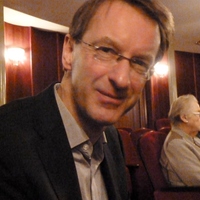
Ari Troost
Born The Hague, December 31, 1959.
Associated researcher Old Catholic Seminary, Utrecht University.
Member European Research Network ‘Transcending Species – Transforming Religion’.
Editor Biblical exegesis, Journal ‘De Eerste Dag’.
PhD Humanities, Utrecht University, 2019.
Assistant lecturer New Testament Exegesis, Biblical Theology and Liturgical Studies, Protestant Theological University Amsterdam and Groningen, 2018-2021.
Teacher Classical Languages and Cultures 2003-2021.
MA Classical Languages and Cultures, Groningen University (cum laude) 2014.
BA Classical Languages and Cultures Groningen University (cum laude) 2007.
Minister Protestant Church in the Netherlands 1998.
MDiv Protestant Theological University Utrecht (cum laude) 1997.
Research assistant, Catholic University Nijmegen 1988-1993
Assistant lecturer Women's Studies Exegesis, Utrecht University 1988-1994.
Drs. theol., Faculty of Theology, Utrecht University 1988.
Supervisors: Prof. dr Peter-Ben Smit, Utrecht University and prof. dr Annette Harder, Groningen University
Associated researcher Old Catholic Seminary, Utrecht University.
Member European Research Network ‘Transcending Species – Transforming Religion’.
Editor Biblical exegesis, Journal ‘De Eerste Dag’.
PhD Humanities, Utrecht University, 2019.
Assistant lecturer New Testament Exegesis, Biblical Theology and Liturgical Studies, Protestant Theological University Amsterdam and Groningen, 2018-2021.
Teacher Classical Languages and Cultures 2003-2021.
MA Classical Languages and Cultures, Groningen University (cum laude) 2014.
BA Classical Languages and Cultures Groningen University (cum laude) 2007.
Minister Protestant Church in the Netherlands 1998.
MDiv Protestant Theological University Utrecht (cum laude) 1997.
Research assistant, Catholic University Nijmegen 1988-1993
Assistant lecturer Women's Studies Exegesis, Utrecht University 1988-1994.
Drs. theol., Faculty of Theology, Utrecht University 1988.
Supervisors: Prof. dr Peter-Ben Smit, Utrecht University and prof. dr Annette Harder, Groningen University
less
Related Authors
Johannes Zachhuber
University of Oxford
Ian Young
Australian Catholic University
Andrea Peto
Central European University
David Seamon
Kansas State University
Natasha Duquette
Our Lady Seat of Wisdom College
Caroline J . Tully
University of Melbourne
Rob S E A N Wilson
University of California, Santa Cruz
Seth Bernard
University of Toronto
Francisco Vazquez-Garcia
Universidad de Cadiz
Beatrice Caseau
Sorbonne University
InterestsView All (15)
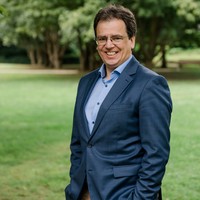





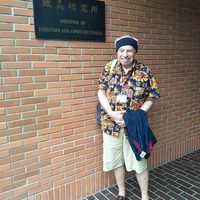

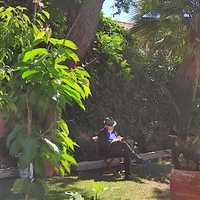
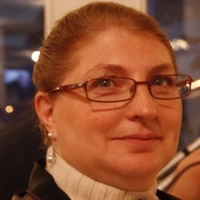
Uploads
Book chapters and journal papers by Ari Troost
Public Scholarship by Ari Troost
Book Reviews by Ari Troost
While it is clear that the search for gender roles in Antiquity has from the outset been motivated by a liberal protestant wish for freedom on the one hand, versus a staunch catholic defence of established positions on the other, it is also clear that the concept of gender itself remained unquestioned, and was applied in an anachronistic, even parontocentric way. Gender remained a concept stemming from modernity, primarily based on biological sex. New Testament scholars, e.g. Conway (2008) have become increasingly uneasy about this and have attempted to describe the construction of gender in Antiquity in terms of virtuous behaviour, rather than sex. Following contemporary research in the field of classical studies, they have proposed a bipolar gradual scale between virtuous masculinity on the one hand and femininity on the other.
In my paper, I will argue that this behaviour based model falls short in giving account of the ambiguity described for Luke's Gospel. I will propose a far more nuanced model to describe the construction of gender in Antiquity, at least during early imperial rule. My model is based on Vitruvius, in which interpretation encountered the same problem as in the case of Luke, that is, a gender paradox, oscillating between 'hypermasculinity' (Milnor 2005) and 'low gender rhetoricity' (Williams 2016). I will argue that a close reading of Vitruvius is not only helpful to delineate the outlines of an ancient gender paradigm 'under construction,' but also helps to highlight a particular development within the construction of gender in which Luke takes part. Thus, I hope to demonstrate that a new heuristic model for gender in Antiquity suddenly and unexpectedly brings to the fore a development in the dealing with gender hitherto not clearly acknowledged, which helps to explain in its turn both the paradox described for Vitruvius and the ambiguity in Luke's Gospel.
I hope that my paper this afternoon will be taken for what it intends to be, [slide 26] a contribution to the field of research that envisions to better understand how gender worked in the ancient world in order to be more critical and informed when it comes to evaluate the way we deal with gender modern.
"Kerken denken ook volop na over seksualiteit. Vaak komen ze daarmee nogal negatief in het nieuws. In De Oud-Katholiek, het tijdschrift van deze kleine en liberale geloofsgemeenschap, een pleidooi om transgenders een rol in de kerken te geven. Sommige kerken hebben er grote moeite mee als iemand van geslacht verandert, met een beroep op Bijbel, scheppingsorde en natuur. Volgens de auteur van het stuk, leraar klassieke talen Ari Troost, moeten christenen niet langer de hakken in het zand zetten. "We moeten ons paradigma opnieuw doordenken, willen we niet het geheim van God missen", stelt hij. Troost wijst op een bijbeltekst van Paulus, die in zijn Galatenbrief schrijft dat 'in Christus mannelijk nog vrouwelijk is'. Volgens hem kan die tekst het begin zijn om uit het harnas van de dogmatiek te breken. "Waar het om gaat, is dat er geen sprake meer hoeft te zijn van wat als typisch mannelijk of vrouwelijk ervaren wordt." Troost denkt dat de discussie over transgenders voor kerken vruchtbaar kan zijn. "Het geheim van God schuilt juist in de veelzijdigheid van mensen. Dat heeft gevolgen voor je denken, niet alleen over seksualiteit en huwelijk, maar ook over onze economie, duurzaamheid, onze hele samenleving."